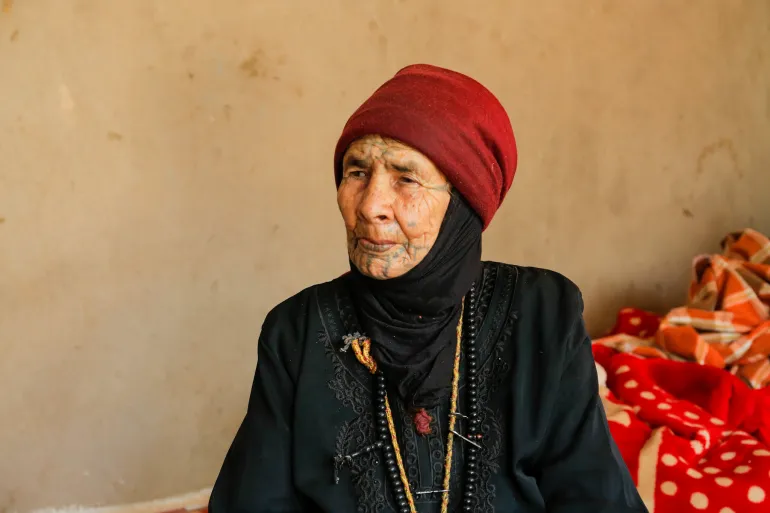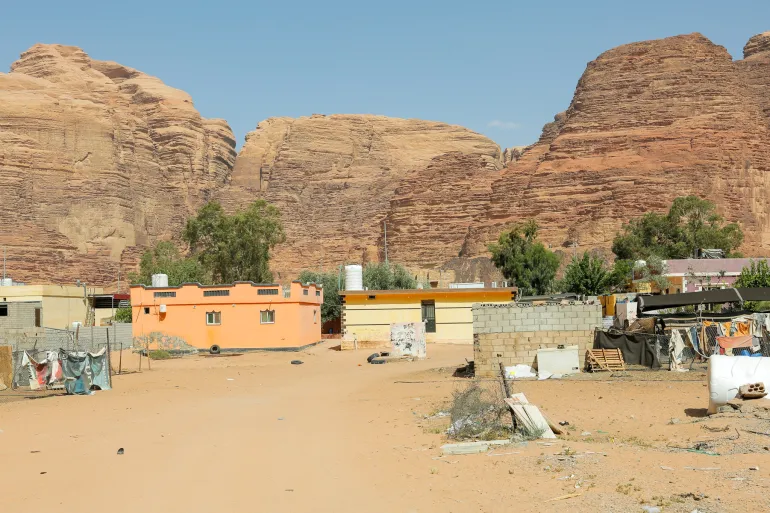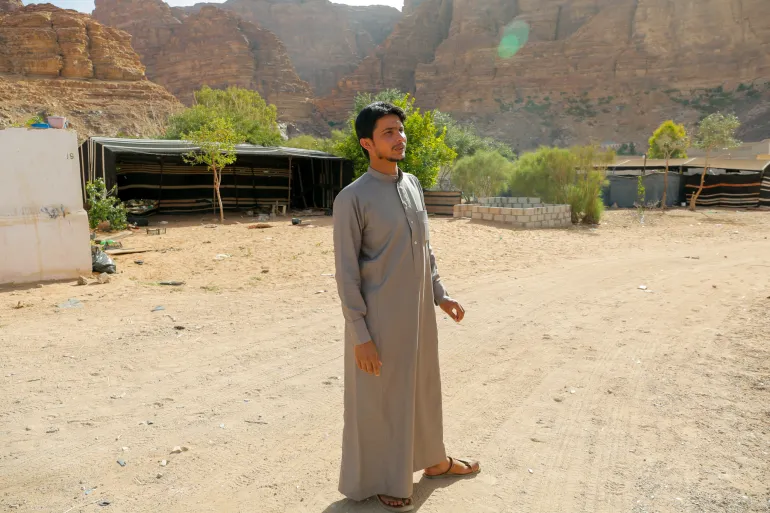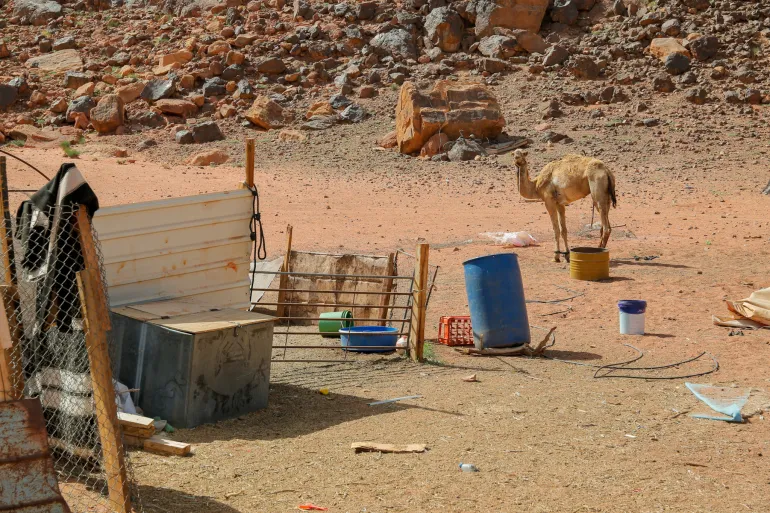In the face of a shifting climate, Jordan, the world’s second most water-scarce nation, is embracing adaptation measures.
Amidst the ever-changing climate, Jordan, known as the world’s second most water-scarce country, is witnessing a transformation.
In the vast desert valley, traditionally inhabited by nomadic communities relying on animal husbandry and hunting, the Bedouins of the southern region have adapted to the challenges posed by climate change by developing the area into a tourist destination.
Salaha al-Zalabeih, an 89-year-old resident of Wadi Rum, has witnessed firsthand the evolution of this UNESCO World Heritage site, now celebrated as one of Jordan’s most sought-after attractions.

Reflecting on the past, she shared how her family’s traditional livelihood of herding sheep and camels became unsustainable due to decreased rainfall. Consequently, they had to relocate to the village and sell their animals. Today, the al-Zalabeih family leads guided tours and operates a camp to cater to travelers.
Impacts of Climate Change
Based on the Köppen-Geiger climate classification, Jordan is predicted to become a “red” country, indicating it will face elevated temperatures and severe droughts in the coming years. This assessment comes from Laith al-Dasouqi, an energy and climate consultant, who emphasizes the potential consequences for various regions, particularly Wadi Rum.

Wadi Rum, already experiencing rising temperatures, confronts multiple climate-related issues, including water scarcity, desertification, and a heightened frequency of extreme weather events like the significant flood of November 2014. Al-Dasouqi underscores the risks faced by the local population, including disruptions to their livelihoods, the tourism industry, and soil erosion leading to the depletion of vegetation cover.
The groundwater situation in Wadi Rum is a matter of concern as it is predominantly considered non-renewable. Analysis from the BGR Water Yearbook reveals a consistent decline in groundwater levels since 1996, decreasing at a rate of approximately 1.2 meters per year. Al-Dasouqi warns that higher temperatures will intensify the demand for groundwater, impacting not only the residents of Wadi Rum but the entire country.
The projections highlight the urgent need for sustainable water management practices and adaptation strategies to mitigate the far-reaching effects of climate change on Jordan’s environment, economy, and people.
Escalation of severe weather events
Despite the increasing frequency of floods in Jordan, it has not translated into improved water accessibility for the people. In fact, as explained by al-Dasouqi, it is detrimental to the soil.
Rain remains the primary water source in Jordan, comprising surface and groundwater. However, sustaining an adequate water supply is challenging due to low rainfall and high evaporation rates. Wadi Rum receives minimal annual rainfall, with some areas experiencing almost no rainfall at all.
The Standardized Precipitation Index, a statistical measure, indicates a heightened occurrence of drought in Jordan. This overall climate change scenario significantly impacts the living conditions of Wadi Rum’s residents, affecting their access to water, food, livestock, and safe habitation.
Hala Murad, the head of the Dibeen Association for Environmental Development, emphasizes the importance of investing in development projects to mitigate the consequences of climate change. Such projects are crucial for the local population in Wadi Rum, addressing the risks posed by torrential rains and establishing infrastructure that prevents the formation of local torrents.
By allocating resources to these initiatives, Jordan can work towards safeguarding its communities and creating a more resilient environment in the face of changing weather patterns.
Living day by day
In the face of climate change, al-Zalabeih and her family approach life with a day-by-day mindset, witnessing improvements in their quality of life over the past decades. Reflecting on her own experience, al-Zalabeih notes the positive transformations in the village, such as the introduction of schools for children, which she didn’t have the opportunity to attend. Grateful for the progress made for future generations, she acknowledges the evolving circumstances.
Al-Zalabeih’s grandson, Salman, resides in the village and works with tourists throughout the year. Acknowledging the uncertainty of how climate change will impact the region in the long run, he expresses gratitude for the recent winter rains and the village’s ability to sustain itself through tourism. However, Salman also highlights some challenges arising from irresponsible tourist behavior. Some visitors bring their own vehicles, posing dangers in unfamiliar territory and causing damage to local vegetation. Additionally, littering without considering the best interests of nature is a concern.

Salman observes temperature differences over the years, with colder winters and warmer summers in Wadi Rum. While the increased rainfall during winters benefits desert animals by providing water, it also brings challenges. Colder temperatures require higher electricity consumption, and extreme cold can negatively affect animal survival.
Amidst these changes, the community in Wadi Rum maintains an adaptive spirit, cherishing the present while striving to balance sustainable tourism and environmental preservation.
SOURCE: AL JAZEERA


